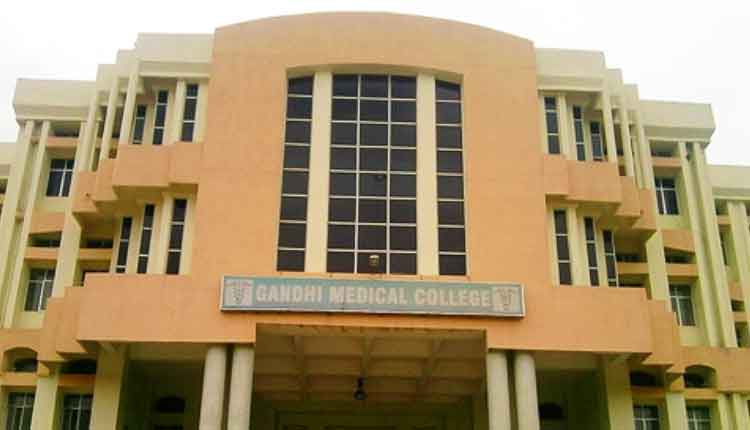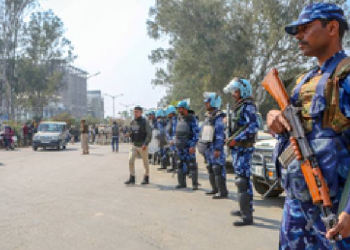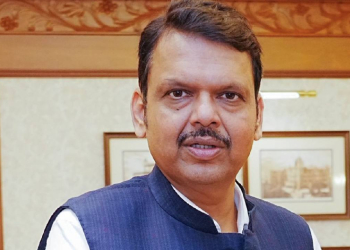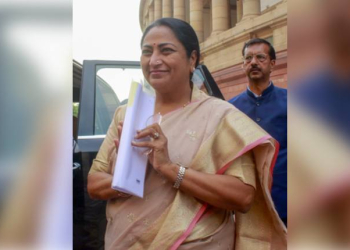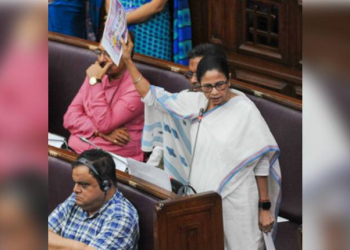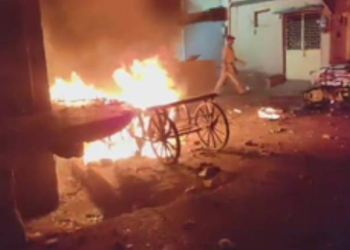Bhopal: The Regional Institute for Respiratory Diseases, which was established few months back in Bhopal’s Idgah Hills area, receives around 150-200 patients every day, of them nearly three to five per cent are follow-up patients affected by the toxic gas leak back in 1984, a senior doctor associated with the institute said.
It is however not the only hospital to look after the MIC gas leak survivors. Bhopal has at least five state and centrally funded hospitals dedicated to treating patients affected by the gas leak.
In May, the then President Ram Nath Kovind laid the foundation stone of Regional Institute for Respiratory Diseases after which a separate respiratory department was established at the TB Hospital premises. The much needed department has indeed added the facilities for screening and treatment of lung cancer, respiratory diseases, and snoring.
Untill, a new four-storey building will be constructed – for which about Rs 56 crore has been sanctioned by the Centre, the department will be operational from the existing building. After estimated two years, the facilities including ventilator, X-ray, pathology, radiology, ultrasound, medicine will be available under one roof.
The newly established respiratory department, which is first in Madhya Pradesh and fourth in the country, was introduced 38 years after the Bhopal Gas Tragedy of 1984 which left the lakhs of survivors of the world’s worst chemical disaster struggling to get back their life normal.
More importantly, the Post Graduate (PG) course specifically for respiratory diseases was introduced around five years back and the first batch of MD in Respiratory (only two seats) in Gandhi Medical College, completed their course in May this year.
IANS spoke to Dr. Harish Pathak, one of the two MDs in Respiratory, who is now serving in the respiratory department in Bhopal, and tried to understand what symptoms are still persistent among the patients affected with toxic MIC gas leak.
Pathak also spoke about the need of the respiratory department especially here in Bhopal and how it is going to help the patients suffering with multiple lung diseases.
“The requirement of a separate respiratory department was obvious since last many years, especially when 41 per cent of the population in the country is consuming tobacco and air pollution is increasing day by day, but during the Covid-19 pandemic, it became a need of hours,” he said.
“See, if you talk about the patients affected with MIC gas leak, then one should be clear that it is incurable. But, it depends to what extent one is affected or how much one has inhaled the toxic gas at that time. There is no specific antidote for MIC gas because it was a subject of research, but unfortunately no research was done on Bhopal Gas Tragedy. You can’t come out with exact medicine, until there is an in-depth research on a particular subject. So, in my opinion, Bhopal Gas tragedy should be included in medical research, so that it can help the medical fraternity to prepare for any such disaster in future,” Pathak asserted.
He further said that people affected by the toxic gas leak incident would often complain about breathing problems, lungs issues and other related symptoms. “The problems such as inflammation and hypertension increases during the winter when air quality in the city deteriorates. One thing is good that all patients affected with gas leak are follow-up patients, and no new patients are coming now.”
Dr. H.H. Trivedi, who was the first doctor to treat the patients of Bhopal gas disaster, also claimed that there was no antidote for MIC gas and people were given basic medicines at that time. “In 1984, when the Bhopal gas tragedy took place, I was the head in Gandhi Medical college and we treated a number of patients relentlessly. The entire doctors’ team worked for over a week without any rest but, I won’t hesitate to say that we were clueless what medicine should be given to such patients because we were unaware of the effect of MIC gas,” he recalls.
(IANS)



